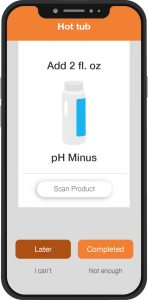Converting Your Pool to Saltwater
Saltwater pools have been around since the 1970s. Through the decades, they’ve proven to be a safe and reliable option for pool owners.
They’ve become a popular choice for pool owners looking for a simple filtration system that produces less harsh chemicals than the chlorine tablets they’re used to. In fact, 70% of new pools in the US are saltwater.
In this article, we’ll cover the major benefits of a saltwater pool. First, let’s clear up some common concerns.
Common Concerns
Let’s clarify one common concern that may be on your mind: a saltwater pool is not SALTY.
The amount of salt in one of these pools is around 3,000 parts per million (ppm). Our friend, the ocean, is about 35,000 ppm. And most people can’t taste salt under 4,500 ppm.
Since the salinity of a salt pool is less than 10% of the ocean, that means corrosion won’t be an issue with your existing equipment. High chlorine levels are more likely to cause damage than a saltwater system. Whether you have a fiberglass pool or a vinyl pool, salt will do less harm than chlorine.
With those initial concerns cleared from your mind, let’s take a look at the top three benefits of switching your pool to a saltwater system.
#1—Easier on Your Skin and Eyes
Without chlorine in your pool, you can say goodbye to the following:
Red, irritated eyesItchy skinBleached swimsuitsHarsh chlorine smell
Yes, a saltwater system generates its own natural chlorine—it’s just much less abrasive. That’s because the salt in the water neutralizes chloramines, which are the particles that cause red eyes, itchiness, and that pungent chlorine smell.
Another benefit of salt is softer pool water that feels like you’re swimming in liquid silk—a much better swimming experience for your family!

#2—Save Time & Money
The improvement to the swimming experience is clear, but what about costs and maintenance hassles?
Your time is precious and spending it buying and adding chlorine tablets to your pool is tedious and time-consuming. A saltwater system’s salt cell produces hundreds of pounds of pure chlorine over its lifespan. That means you don’t have to buy chlorine tablets, nor do you have to worry about when to add them. It does most of the work for you.
How much is a saltwater pool system? Depending on the size of your pool, a quality system will cost anywhere from $700-$1,200. If you ever get quoted way above that, you’re probably dealing with a pool store that’s worried about losing money on all the chlorine you won’t be buying.
On average, you’ll spend 30-50% more on chlorine than you would over the lifespan of a salt system.
Of course, like any piece of equipment, your saltwater system will wear down with use, but you won’t have to replace the whole system, just the salt cell—the salt chlorine generator at the heart of the equipment.
With proper maintenance, it can last for up to seven years. When it’s time for replacement, a salt cell is usually half the cost of a complete salt system.
And that whole time, it’s producing natural saltwater, saving you time and money having to buy chlorine yourself.
#3—Easy to Install & Maintain
You may have heard that you’ll need to replace all of your pool equipment. That is not true.
A saltwater system can be easily added to your existing pool equipment in one visit. A Premier Professional will install it for you in a couple of hours, tops.
It also requires much less maintenance. The salt cell does most of the work for you, making it an excellent chlorine substitute.
Just like the rest of your pool equipment, Premier Pool Service can also make sure your saltwater system is in good working order each time we visit. Check here to see if Premier Pool Service is available in your area.
What Are You Waiting For?
No matter what type of pool you have, a saltwater pool is a great alternative to chlorine systems. It will save you time and money while creating a better, healthier swimming experience. A saltwater pool needs far less pool maintenance than traditionally chlorinated pools.
Contact your local Premier Pool franchise to get a recommendation for a saltwater system and schedule us to install it for you.
Always check our latest articles at…
https://www.calistogapool.org//category/pool-services




